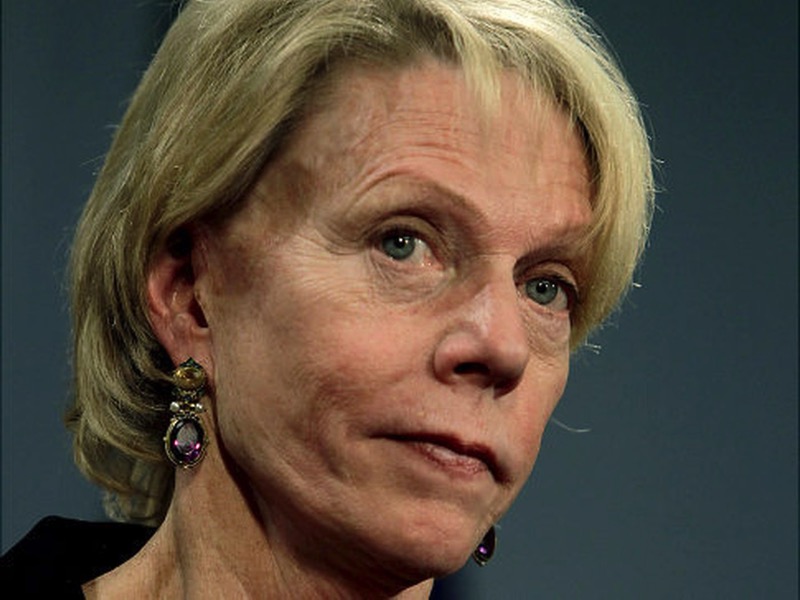A closer look at new schools chancellor Cathie Black's resume shows troubling link to Coca-Cola
By Juan Gonzalez | NY Daily News | November 17th 2010
Read Original

Besides having zero experience in public education, Cathie Black has also served on Coca-Cola's board of directors.
(Photo by Seth Wenig)
It is bad enough that magazine executive and Park Avenue socialite Cathie Black, Mayor Bloomberg's choice to run our school system, has zero experience with public education.
Her business resume that Bloomberg keeps touting also deserves close scrutiny.
For most of the past 17 years, Black sat on the board of directors of Coca-Cola. Last year alone, the soft drink giant paid her $195,000 compensation in cash and stock for attending 10 board meetings.
During much of that time, Coke's human rights record and its marketing tactics to children in Latin America have generated major controversy.
Former city Controller William Thompson and the city's public pension funds twice confronted the company about its practices.
In 2005 and 2006, they forced votes on shareholder resolutions calling for an independent investigation of allegations that Coca-Cola colluded in anti-union violence in Colombia.
After several murders of union members at Coke bottling affiliates in Colombia, union leaders there filed a $500 million civil suit against the company in Miami Federal Court.
They claimed plant managers routinely called in death squads to terrorize their members. A PBS "Frontline" report later found attacks had occurred inside the plants with the knowledge of local supervisors.
As a member of the company's public issues and diversity committee, Black was well aware of the allegations.
She and her fellow board members fought off the shareholder resolutions by assuring investors that Coke's own internal review had shown that "allegations the bottlers engaged paramilitaries to intimidate trade unionists are false."
The Colombian suit was eventually dismissed on a technicality, but a Coca-Cola boycott campaign has been slowly spreading to scores of colleges across the country.
Among the local schools that dumped Coke supply contracts are Rutgers, Manhattanville, State University at Stony Brook and Bard College.
This year, former Coca-Cola employees in Guatemala who were forced to flee their homeland filed suit against the company in New York.
Jose Armando Palacios and Jose Alberto Vicente Chavez say they were shot at and their families terrorized by armed men because of their involvement with a union at the Guatemalan plant.
Coca-Cola lawyers want to move the case from Manhattan Federal Court to Guatemala.
Meanwhile, Mexico's best-known consumer advocacy group, El Poder de los Consumidores, has repeatedly blasted Coca-Cola and other producers of high-sugar products for their marketing campaigns to that country's schoolchildren.
In the past two decades, consumption of soft drinks among Mexico's poor has increased by 60%, and the country now has one of the highest rates of Coca-Cola use in the world. Nearly 70% of Mexican adults are overweight or obese, and 10 million suffer from diabetes.
"If one product has contributed significantly to [to this], it is the soft drink Coca-Cola," consumer advocate Alejandro Calvillo said recently.
When Bloomberg's aides finish tutoring Black on the ABC's of running a public school system and she finally begins talking in public, she should also explain how all those years as a director at Coca-Cola qualify her for this post.
FAIR USE NOTICE. This document contains copyrighted material whose use has not been specifically authorized by the copyright owner. The Campaign to Stop Killer Coke is making this article available in our efforts to advance the understanding of corporate accountability, human rights, labor rights, social and environmental justice issues. We believe that this constitutes a 'fair use' of the copyrighted material as provided for in section 107 of the U.S. Copyright Law. If you wish to use this copyrighted material for purposes of your own that go beyond 'fair use,' you must obtain permission from the copyright owner.











